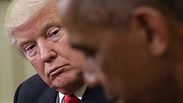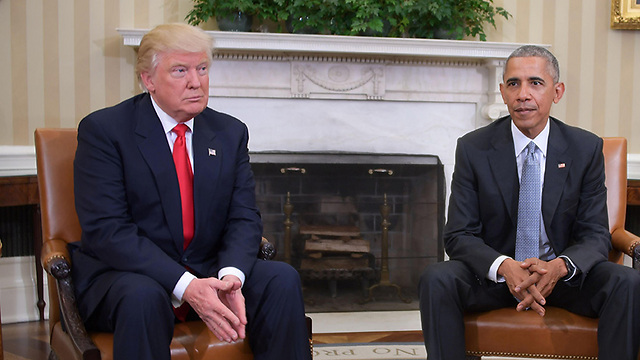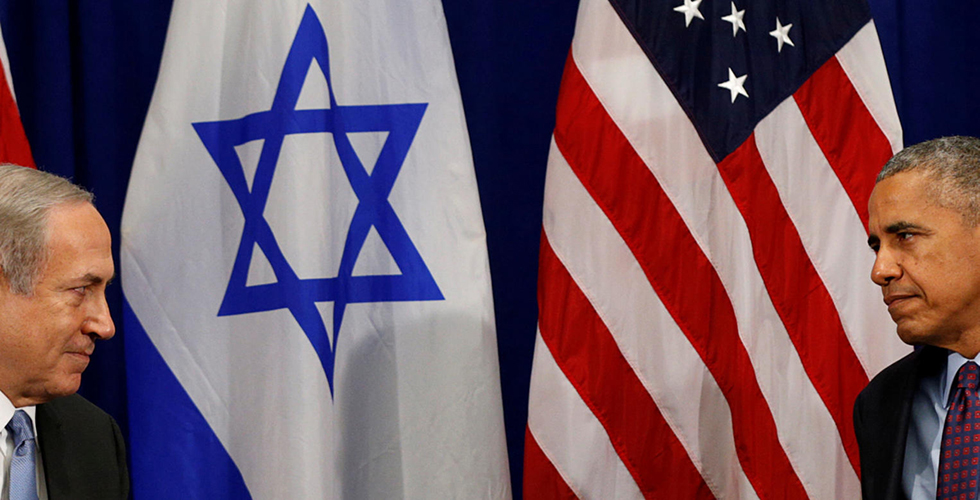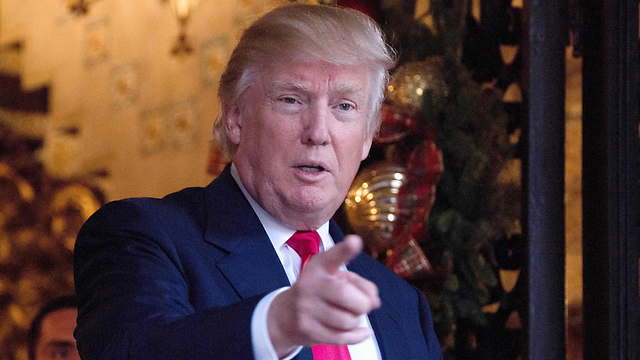
Trump won't be able to change the UNSC resolution
Opinion: By failing to veto the UN Security Council resolution against the settlements, Obama was sending a message to Israel: Enough is enough, no more empty words. He may be leaving the White House without having justified the Nobel Peace Prize he received, but it doesn't matter what Trump does—this resolution is not going away.
The era of winks and turning a blind eye has ended. The American abstention from the vote made the message loud and clear: this is the end of doublespeak, of Israel saying one thing and doing another, of empty words meant to cover this sad truth: Israel may be talking about the need for a two-state solution, but it does not have even an ounce of intention to take the necessary steps to make that happen. Not even for the sake of appearance.
For several months now that the White House has been thinking of ways for Obama to end this sad chapter of his presidency about Israel and the Palestinians. As first reported by Yedioth Ahronoth, one of these options was to have Obama make a speech before leaving office, presenting the main points of the American plan as a kind of framework for his successor. Another alternative considered was to not veto a resolution at the UN Security Council—and this is what happened.
Enough is enough
Obama, who will be leaving the White House in less than a month, told Prime Minister Netanyahu: Enough is enough. We listened to you, we gave you days of grace, we gave you a ladder to climb down the tree, showered you with the best of the best of our security, military and intelligence aid, and hoped that you were really going to do what you promised and take the path of peace.
Game over. Obama may be the one going home, but when it comes to the Israeli-Palestinian conflict, he's not doing so quietly. On the contrary, he pulled out all the stops when he authorized the US Ambassador to the UN, Samantha Power, to abstain from the vote and not veto it, as the US normally does.
From his point of view, Obama is convinced he has done this for Israel's sake, as if saving it from itself. For months now that he's been trying to reason with Netanyahu—both in public and in private conversations—and warn him that time was running out, and that if he didn't make a move towards a two-state solution, Israel will lose its ability to continue existing as both a Jewish and a democratic state.
During his years in the White House, President Obama had a hard time understanding Israel's hostile treatment of him. He saw this as ungratefulness. Never has an American president embraced Israel like he had done with aid money, the Iron Dome and other forms of security cooperation that are best kept secret. He used to ask his close advisors why he was so unpopular in Israel. This question bothered him, but it didn't change his policy, his belief that the alliance between the two nations must be fiercely protected, while the US's commitment to Israel's security was sacred and unbreakable.
The president was willing to facilitate and strengthen the dialogue between the two sides and was among the most vocal in condemning Palestinian terrorism. He did not give them an easy time.
Those who know him well believe that had Obama not lent his hand to pass resolution at the Security Council, he would've been acting against his own beliefs. Not only does he believe the settlements were undermining Israel's security, as well as the possibility to have a dialogue for peace, but he also believes the settlements are illegal.
He didn't come up with this. It has been American policy to not recognize the settlements for decades. Even Republican presidents—like Reagan and both Bush senior and junior—condemned the settlements, called to halt construction there and urged the sides to start a dialogue that would bring to the end of the conflict.
Obama had no need to reinvent the wheel. This is American policy, and the Security Council resolution reflected exactly that. It also reflected American policy to condemn Palestinian terrorism.
Obama's final word
With regards to American policy, there is nothing new under the sun. But there is a resolution adopted by the Security Council and the big question that follows: What's going to happen next? After all, the United States has a new president who is going to enter office on January 20.Donald Trump is actually not all up in arms over the settlements. He said the United States should have vetoed the decision and even called on Obama to do so.
Trump has yet to formulate his foreign policy, nor his policy concerning the Middle East. But he promised that as soon as he is sworn in as president, things with the UN will be different. How is it going to be different? Much like the thousands of surprises we saw from him during the race to the White House, he can surprise us again. Trump has already said he intends to be neutral when it comes to the Israeli-Palestinian conflict, which didn't stop him from doing a 180 a few days later and saying he was 100 percent behind Israel.
He plans to appoint David Friedman, who supports the settlements and doesn't believe in the two-state solution, as the American ambassador to Israel. He named Jason Greenblatt, a religious Jew, as his representative for international negotiations. His son-in-law, Jared Kushner, supports the settlements—financially as well—and is going to be one of the strongest men in Trump's administration.
At this point, however, Trump cannot do anything about the Security Council's decision. And that is why Obama chose this option, rather than making another fiery speech that would present the American framework and then be thrown aside to gather dusk in some drawer.
Trump can have whatever policy he wishes concerning Israel and the Palestinians, but the decision made by the world through the UN Security Council will always be there, and the way the world treats Israel will be in accordance with the resolution.
Trump can announce that the United States was leaving the UN or that he is cutting the organization's funding. But there is no guarantee that this would be his course of action. It's doubtful he knows at this point what it is that he wants from Israel and the Palestinians and how he wants to get it done.
Meanwhile, the resolution stands and Obama has had his final word on the conflict. Still, some among his liberal Democrats voters wondered on Friday what would've happened if he made his move on time—rather than at the very last moment—and forced the sides to sit and talk, achieving peace with heavy pressure and persuasion, with promises only a world power can make. If he had done this at the end of his first term, and not his second, he might have been able to justify the Nobel Peace Prize he received as an advance payment when he entered office. Alas, he didn't.













